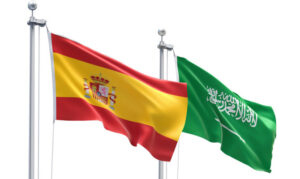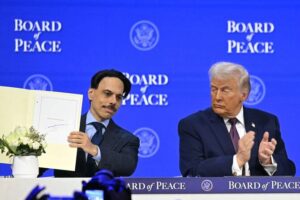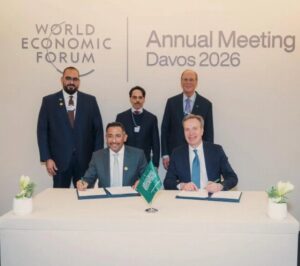Saudi Minister Alibrahim Highlights Kingdom’s Economic Transformation and Strategic Balance at Berlin Global Dialogue

Berlin, The Gulf Observer: Saudi Minister of Economy and Planning, Faisal Alibrahim, affirmed that the Kingdom continues to assess its economic priorities and make decisions that advance its long-term national interests while preserving balanced strategic partnerships.
Speaking at the Berlin Global Dialogue on Friday, Alibrahim highlighted that the United States remains Saudi Arabia’s oldest trading partner — a relationship spanning nearly nine decades — while China has emerged as its largest trading partner today.
The minister noted that the Kingdom’s dependence on oil, both direct and indirect, has decreased significantly from over 90 percent to 68 percent, with non-oil activities now contributing 56 percent of Saudi Arabia’s real GDP.
“Saudi Arabia is still at the beginning of its transformation, but the figures point to a more resilient and sustainable economy driven by productivity, not spending,” Alibrahim stated.
His remarks came as Saudi Arabia revised its 2026 economic growth forecast upward to 4.6 percent from the previous estimate of 3.5 percent, according to the Ministry of Finance’s preliminary budget statement earlier this month. The higher projection reflects strong performance and expansion in non-oil sectors.
Addressing the broader global landscape, Alibrahim observed that the world is undergoing a prolonged transition toward multipolarity — a period characterized by volatility yet rich with opportunity. “The strength of nations does not stem only from their resources, but from their ability to invest those capabilities, build effective institutions, and direct public policy efficiently,” he said, stressing that meaningful engagement with international partners is crucial to building a more stable global system.
On the role of government in the economy, Alibrahim underlined that state involvement should represent “measured intervention” aimed at mitigating risks to the private sector, rather than substituting for competitiveness or market dynamism. He added that the perceived “financing gap” in global markets is often overstated, emphasizing that the real challenge lies in the efficient use of capital, not its availability.
Commenting on the impact of U.S. sanctions on Russian oil exports, the minister reiterated that Saudi Arabia remains committed to ensuring long-term market stability and meeting global demand. He noted that the Kingdom is gradually phasing out some of its voluntary oil production cuts to achieve a sustainable balance in energy markets.
Alibrahim concluded by emphasizing that Saudi Arabia’s economic transformation is an ongoing institutional process — initiated more than eight years ago — founded on systematic policy evaluation and openness to diverse perspectives.
Expressing optimism for the future, he said, “I hope that uncertainty will subside and that we return to a rules-based global system, even if the rules change slightly. What matters is that dialogue leads to tangible outcomes, not just statements.”


